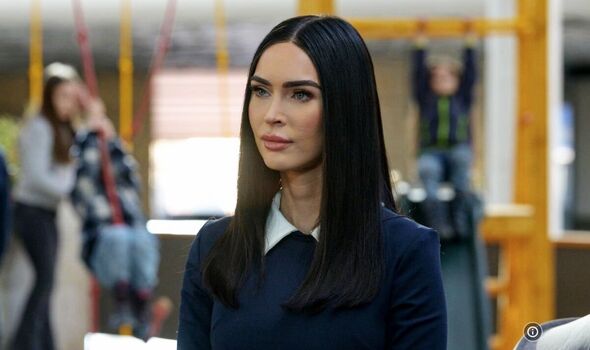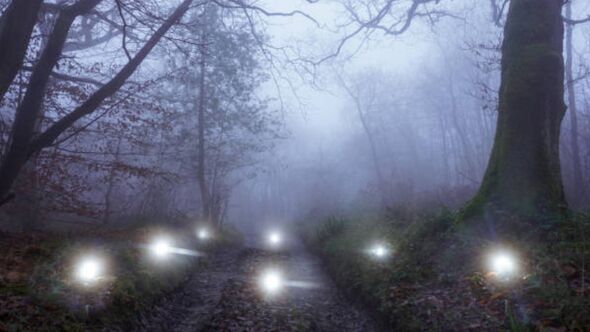
Monster trucks take American culture on the road
December 6, 2014
What will happen with Eastern Ukraine?
December 6, 2014Yesterday was a moment of celebration for European science. Although the precise fate of the Philae probe remains unclear, the remarkable achievements of the Rosetta mission reflect the noblest ideals of pan-European research: 2000 scientists and engineers from across the member states of the European Space Agency (ESA) pooling their resources and expertise in pursuit of new knowledge. Jean-Jacques Dordain, ESA’s director-general, described it as “a great great day, not only for ESA, but…I think for the world.”
But while the eyes of Europe’s scientific community were fixed firmly upwards, back on earth, in the corridors of Brussels, a less edifying plan began to unfold. Borrowing a trick from the Jo Moore school of media management, the European Commission chose the evening before the Rosetta landing to confirm quietly that its most senior scientific role, that of chief scientific adviser (CSA) to its president, is being scrapped.
Professor Anne Glover, who has occupied the CSA role since 2012, broke the news in an email last night to Sir Paul Nurse, president of the Royal Society, and his counterparts in national academies across Europe. The email says simply:
The European Commission confirmed to me yesterday that all decisions on the Bureau of European Policy Advisers (BEPA) were repealed and so the function of Chief Scientific Adviser has ceased to exist. The new European Political Strategy Centre (EPSC) which “replaces” BEPA does not comprise a function “Chief Scientific Adviser”.
It is not up to me to comment on this decision, but I would like to express that I am proud of what this office has achieved in less than 3 years with very few resources. This has only been possible thanks to your continued support throughout this time and the hard work of the fantastic members of my team who will now seek new opportunities.
I am going to leave the Commission at the end of January and look forward to meet you again in the future.
With all best wishes
Anne
This decision comes after months of uncertainty surrounding the future of the CSA role, which was created in 2012, in response to calls to strengthen scientific advice and evidence-based policy in Europe.
In recent months, a war of letters has raged between critics and supporters of the role. In July 2014, a coalition of environmental groups, including Greenpeace, wrote to the incoming president of the Commission, Jean-Claude Juncker, calling for the CSA role to be scrapped. Their letter argued that: “The post of CSA is fundamentally problematic as it concentrates too much influence in one person…”.
Soon afterwards, a response letter in support of the CSA role was sent to Juncker, signed by forty scientific organisations and 773 individuals, which said “we cannot stress strongly enough our objection to any attempt to undermine the integrity and independence of scientific advice received at the highest level of the European Commission.” (Full disclosure: I was a signatory to this second letter, in my capacity as chair of the Campaign for Social Science). Further letters of support for Glover were sent to Juncker by several scientific, business and civil society organisations, while Greenpeace also elaborated its position in a piece by Doug Parr on this blog.
It initially appeared that President Juncker would renew the post of CSA. Quizzed on the topic in July by British MEP Julie Girling, he indicated as much. And in his mission letter to Carlos Moedas, the incoming Commissioner for Science, Research and Innovation, Juncker emphasized as one of his priorities the need to “make sure that Commission proposals and activities are based on sound scientific evidence”.
But when the Barroso Commission left office at the end of October, Anne Glover’s formal mandate ended, and her role was placed in limbo. Glover will now continue in an informal capacity and remain a member of Commission staff until the end of January. But she is no longer able to speak publicly as CSA, and may not even be able to attend the second meeting of the European science advisers’ forum, which she created, when it meets in Amsterdam in early December.
Speaking this week to Science magazine, Mina Andreeva, a Commission spokesperson, said that “President Juncker believes in independent scientific advice”, but has not yet decided how to “institutionalize” the function. Previously, the CSA was based within the Bureau of European Policy Advisers, which has now been scrapped. Its successor body, the European Political Strategy Centre (EPSC), will not include a scientific adviser, as Glover’s email last night confirmed.
Beneath headline disagreements over the renewal of the CSA role, there are legitimate debates to be had about the most effective arrangements for scientific advice in the Commission. Together with Rob Doubleday at the Cambridge Centre for Science and Policy, I am currently finalising a book of essays on Future Directions for Scientific Advice in Europe, to be published in early February 2015, which will include detailed recommendations and contributions by leading scientists, social scientists and policymakers from across Europe.
Anne Glover herself was very open about the challenges she faced in the role, the need for more resources, and the potential for closer integration with other functions, such as the Joint Research Centre, which describes itself as the Commission’s “in-house science service”. I would urge those who have criticised her for a lack of transparency to watch this remarkably frank speech she gave at the Auckland summit on ‘Science Advice to Governments’ at the end of August.
As my colleague Roger Pielke Jr. has argued, CSAs are not superheroes: they can’t singlehandedly cut through the messiness that so often erupts when science, politics and policy collide. But with proper support, sufficient resources, and appropriate protocols for independence and accountability, CSAs can make a positive difference, as we see in a growing number of advisory systems around the world. More than anything else, CSAs act as a magnifying device, able to draw on a wider and more distributed ecosystem of expertise, and focus its contribution in a way that is timely and relevant to the policy process.
It is hard not to interpret this week’s decision as a serious downgrading of the status of scientific advice at the top of the Commission. I fully expect Europe’s research community – and all those who want a stronger role for evidence in EU policy – to be up in arms over this outcome. Juncker now needs to clarify with urgency what precise structures for scientific advice he plans to put in place.
Of course, Juncker is a busy man in a new job, but this issue seems to be disturbingly low on his to-do list. I am reliably informed that, despite repeated overtures from Anne Glover, Juncker has refused to meet with her to discuss the future of EU scientific advice. This attitude needs to change, and fast, if the new Commission is to maintain the confidence of the scientific community.
If the European CSA is now dead, snuffed out by bureaucratic indifference before its third birthday, the wider agenda of improving the evidence base for European policy must yet prevail.
And the scientific community owes a huge debt of gratitude to Anne Glover for all that she’s done, against the odds, to advance this cause since 2012. Yesterday, in a poignant tweet about Rosetta, sent only minutes before she revealed to colleagues that her role was being axed, Glover observed that “Today is such a special day and typifies the Europe I love – big ideas, big minds, big hearts, big ambition, big future…”. Quite what place scientific advice will occupy in that future remains to be seen.
James Wilsdon (@jameswilsdon) is professor of science and democracy at the Science Policy Research Unit (SPRU), University of Sussex, and chair of the Campaign for Social Science.




